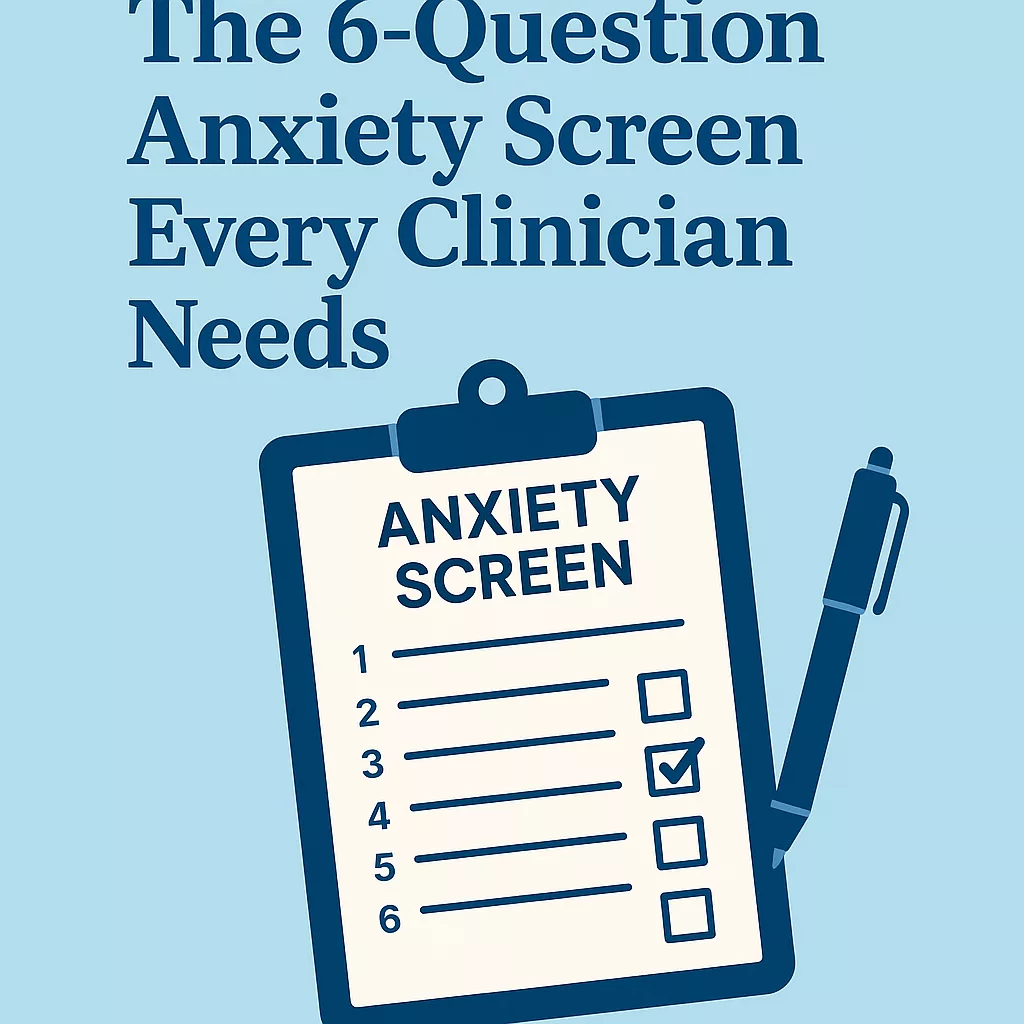You Treat Her Depression for Months. The SSRI Works. Therapy Helps. But She's Still Struggling at Work. She's slower than her colleagues. Always the last to leave meetings. Takes forever to finish tasks.
Then you ask the right question: "Do you have any repetitive behaviors or thoughts that feel hard to control?"
Suddenly, everything clicks.
The hand washing. The checking. The mental counting. She's had severe OCD for years—but depression was louder.
Here's what I've learned: We're excellent at screening for depression and suicidal ideation. We're inconsistent at screening for anxiety disorders.
And that's a problem.
Research shows that 50-75% of patients with major depression have comorbid anxiety disorders, with rates reaching up to 75% in primary care settings. When we miss them, we're treating half the picture.The cost isn't just diagnostic. It's therapeutic.
SSRIs are dosed higher when OCD is present. CBT looks different when social anxiety is driving the depression. Treatment timelines shift when panic disorder is complicating recovery.
But here's the thing—screening doesn't have to be complicated.
Six simple questions can change everything:
↳ "Are you a person who worries almost all the time about all kinds of things?" (GAD)
↳ "Have you ever had a panic or anxiety attack?" (Panic disorder)
↳ "Do you feel very anxious in social situations?" (Social anxiety)
↳ "Do you have obsessive thoughts or repetitive behaviors?" (OCD) ↳ "Have you experienced a traumatic event that still affects you?" (PTSD)
↳ "Do you have a strong fear of a specific situation or object?" (Simple phobia)
Each question takes 10 seconds. The follow-ups take another minute.
But that minute can reshape treatment entirely.
The truth? We don't need more time. We need better questions.
When anxiety hides behind depression, our patients stay stuck. When we find it, we finally see the whole person.
- What's one anxiety disorder you wish you'd caught earlier?
- Share this if you know someone who needs to see it
- Follow for more practical clinical insights
Join the conversation on LinkedIn with Dr. Carlat

Related Articles
- Antidepressant Oddities Author: Daniel Carlat, MD
- Pharmacotherapy for Dementia Author: Stephanie Collier, MD
- Update on Escitalopram Author: Mariel Zeccola, APRN, PhD


_-The-Breakthrough-Antipsychotic-That-Could-Change-Everything.webp?t=1729528747)



